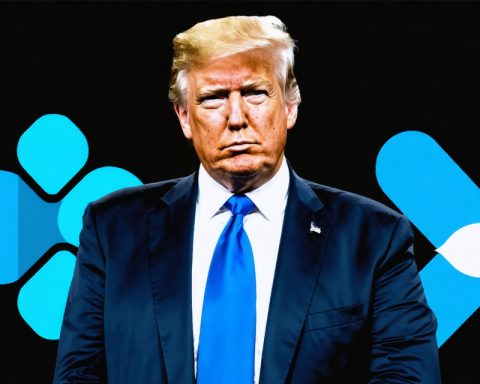- Tyler Winklevoss, CEO of Gemini, announced the exchange will not hire MIT graduates while Gary Gensler teaches there.
- This decision highlights the ongoing tension between the cryptocurrency industry and regulatory bodies.
- Winklevoss believes Gensler’s regulatory past poses a conflict that could stifle innovation in crypto.
- Gemini’s stance reflects a widespread sentiment in the crypto community about the negative impact of stringent regulations.
- The situation signals a critical moment in the ongoing ideological battle between innovation and regulation in finance.
- The future of the cryptocurrency landscape may hinge on the balance between creativity and regulatory restrictions.
In a bold move that has stirred the crypto community, Tyler Winklevoss, the CEO of Gemini, revealed that his exchange will not be hiring graduates from MIT as long as former SEC Chair Gary Gensler is teaching there. This decision raises eyebrows and prompts questions about the ongoing tension between the crypto industry and regulatory bodies.
Winklevoss emphasized that Gensler’s presence at MIT poses a significant conflict, citing his past regulatory stances that have frustrated many in the crypto space. By declining to recruit from one of the nation’s top tech universities, Gemini is making a statement about the serious implications of regulatory philosophy on innovation and talent acquisition.
This controversial choice reflects a broader sentiment within the cryptocurrency realm, where many believe that stringent regulations could hinder growth and technological advancement. The Winklevoss twin’s vow essentially sends a powerful message: the future of finance should encourage creativity and risk-taking, not be stifled by outdated regulations.
As the world of digital currencies evolves, the actions of giants like Gemini signal a pivotal moment in the ongoing battle between innovation and regulation. The takeaway? The crypto landscape is not just about technology; it’s also about the ideological battles that will shape its future.
Will this decision affect MIT graduates aspiring for careers in cryptocurrency? Only time will tell, but one thing is certain: the clash of ideas is just heating up!
Gemini’s Bold Move: How Tyler Winklevoss is Shaping the Future of Crypto Talent Acquisition
The cryptocurrency landscape is undergoing a critical transformation, and Tyler Winklevoss’s recent announcement regarding hiring practices at Gemini has sparked widespread discourse. The decision not to hire MIT graduates while former SEC Chair Gary Gensler is teaching there is more than just a peculiar recruitment strategy; it reflects a growing tension between innovation and stringent regulation within the crypto industry.
New Insights and Trends in Crypto Hiring
1. Talent Acquisition Dynamics: The crypto sector has witnessed a significant shift towards prioritizing a confrontational stance against regulatory frameworks. Companies are increasingly favoring candidates whose academic affiliations do not align with stringent regulatory stances, highlighting a trend where educational institutions are scrutinized based on their faculty’s regulatory philosophy.
2. Market Response: The broader crypto market reacted to this controversial decision, illustrating how talent acquisition decisions can influence market sentiment. Companies that openly defy regulatory hurdles may attract a more innovative workforce, which could lead to groundbreaking developments in the space.
3. Long-Term Impacts: This decision may set a precedent for other companies in the crypto industry, leading to a potential cohort of firms that prefer fostering a non-traditional talent pool. It raises questions about how current regulations may shape the future workforce within the cryptocurrency sector.
Key Questions Answered
1. What are the implications of Gemini’s hiring policy on the future of talent in cryptocurrency?
– Answer: By choosing not to hire from MIT, Gemini signals to the industry that regulatory philosophy may be becoming a more critical hiring criterion. This could lead to a shift in where crypto companies seek talent, possibly distancing themselves from institutions that have regulatory ties, thus impacting the diversity and caliber of professionals entering the industry.
2. How does this decision reflect the current state of regulatory relations in the crypto market?
– Answer: Winklevoss’s move highlights the ongoing friction between innovative sectors and regulatory bodies. It encapsulates the broader narrative in which many crypto leaders view existing regulations as impediments to creativity and advancement. As companies become more vocal about these issues, it may lead to a larger push for reform.
3. Could this decision have lasting effects on MIT’s reputation in the tech and crypto spaces?
– Answer: Yes, as more companies may adopt similar stances, MIT could face challenges in positioning its graduates within the crypto industry. This may necessitate a reassessment of the courses taught or the faculty involved to align with the rapidly evolving industry landscape.
Related Insights and Future Predictions
– Innovation vs. Regulation Predictions: As the crypto industry matures, there will likely be continued debates surrounding the extent to which regulations should influence technological development. Expect to see more companies push back against regulatory stances that they believe stifle innovation.
– Competitive Landscape: Firms that promote a regulatory-friendly culture may gain an edge in talent acquisition, fostering a competitive landscape that could either catalyze or inhibit the growth of the crypto ecosystem.
Suggested Related Links
Gemini
SEC
MIT
In summary, Tyler Winklevoss’s intriguing strategy not only emphasizes the ideological battle between regulation and innovation but also positions Gemini at the forefront of a significant shift in the cryptocurrency hiring landscape. As this narrative unfolds, the ongoing transformation of the crypto workforce will be pivotal in shaping the future of the industry.
















